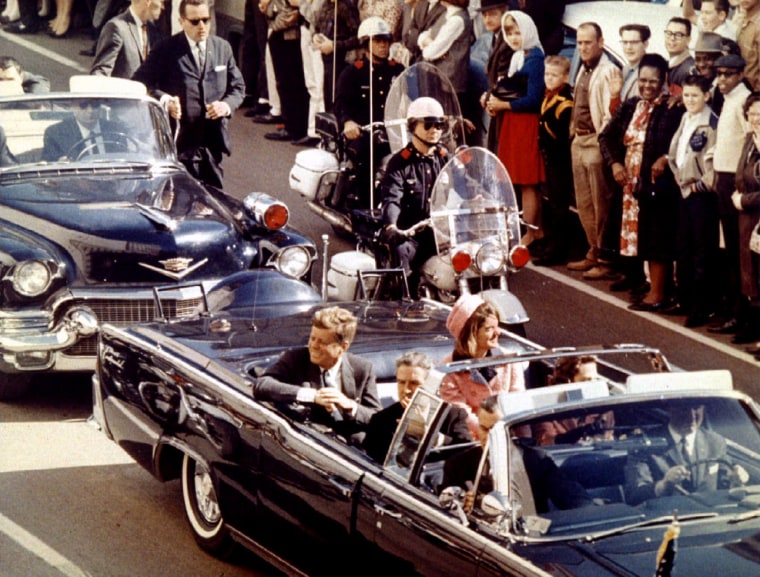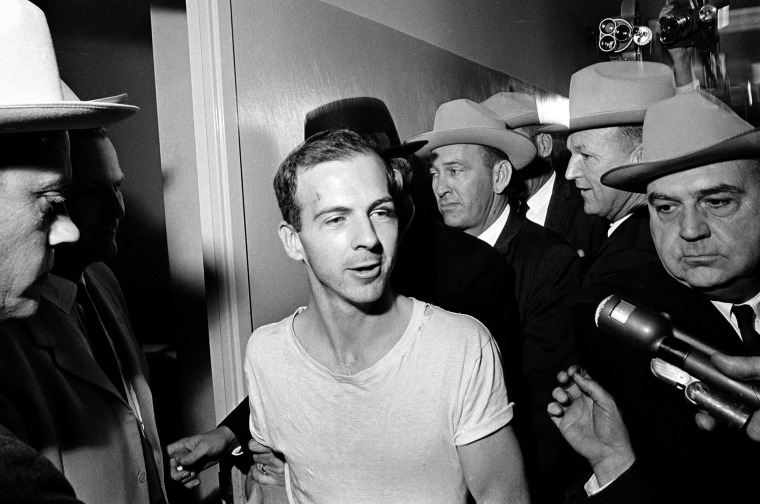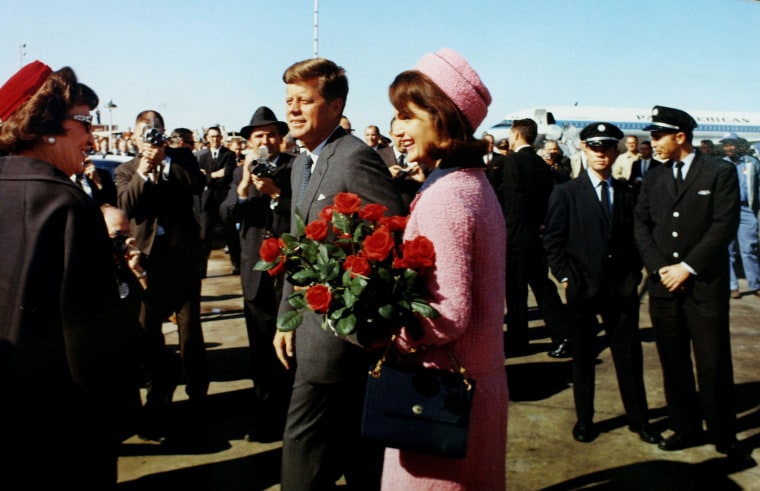The assassination of President John F. Kennedy, which occurred almost 54 years ago, has been the subject of great speculation by professional and amateur conspiracy theorists for decades. Did Lee Harvey Oswald really act alone? Did a foreign (or domestic) agency order the hit? Was the fatal shot actually fired by one of Kennedy’s own secret service agents?
The release last night of previously classified JFK assassination documents has sparked a new wave of theorizing. Yet so far, the documents — which represent only a portion of the total cache, some of which is still being reviewed by federal agencies — have yielded little new information. So why all of the excitement?
One thing that sets JFK assassination theories apart from other conspiracies are how popular they are. Indeed, in recent years a majority of Americans have endorsed one Kennedy conspiracy theory or another. In the late 1990s, this number was almost 80 percent.

This apex is likely due to Oliver Stone’s conspiracy thriller, "JFK," the popular television series "X-Files," and the coming of age of cynical Baby Boomers and Gen Xers whose trust in government during the 1990s was particularly low. For example, in the late 1990s, close to 80 percent of Americans according to one poll believed in alien/government cover-up conspiracy theories. That number is (thankfully) much lower now.
Regardless of their waxing and waning, these staggering numbers reveal the American public’s high levels of distrust, and in some cases, delusional thinking. This, in turn, also explains why Trump himself has shown so much interest in the files.
Indeed, Trump has dabbled in conspiracy thinking himself. Back in 2016, Trump pointed to an old rumor involving Ted Cruz’s father Raul and Oswald. And longtime Trump ally and conspiracy theorist Roger Stone called Trump's release of the JFK documents heroic.
It actually makes a lot of sense that Trump, who ran a campaign based in part on attacking the mainstream establishment, would embrace conspiracy theories — and voters who believe in them. By aligning himself as a maverick working outside the corrupt status quo, Trump is actively marketing himself to exactly the kind of person who would believe the government lied about who killed Kennedy.
The ways one can becomes a conspiracy theorist are many, but upbringing has a lot to do with it. Just as early childhood socialization can determine political orientations later in life, our parents, education, media diet and even religious influences whether we think institutions are corrupt — and to what extent. I call this conspiracy thinking; people who exhibit high levels of conspiracy thinking are more likely to view events and circumstances as the product of conspiracies. These people are also more likely to believe in conspiracy theories when they are exposed to them.
JFK conspiracy theories are so ingrained in our cultural and societal references that most Americans are exposed to them at some point or another. They also are attractive, however, because there is little partisan element that would divide potential believers. For example, at their respective peaks, the Birther (Barack Obama faked this birth certificate) and Truther (the Bush Administration was behind the 9/11 attacks) theories maxed out at about 25 percent.

JFK conspiracy theories are more than twice as popular as each of those theories. Most Republicans — even conspiracy-inclined ones — reject Truther theories and most Democrats — even conspiracy-inclined ones — reject Birther theories because of ideological reasons. But a general feeling of distrust in institutions is much less partisan.
Of course, while many Americans believe the government covered something up in Dallas, they do not always agree on what that cover-up entailed. Polls asking conspiracy theorists detailed questions find great disagreement within the majorities: Everyone seems to have their own assassin or isn’t that sure who did it.
It’s important to note that there can be a silver lining to various conspiracy theories. Sometimes, they can force institutions to release information or make themselves more accountable to the public. In this case, we now know much more about the Kennedy assassination because of the persistence of conspiracy theorists.
Did the CIA kill Kennedy? Or did Casto pull the trigger? Or maybe it was the military, the FBI, the Dallas police, Cuban dissidents, defense contractors, or the Soviets. We may never know for sure, and this uncertainty means we may never fully quell the rumor mill. (The government’s rather ham-handed redactions don’t help, of course.)
Putting the fanciful ideas of grand conspiracies aside, however, the most important lesson we can learn from the release of the JFK Files is how many Americans continue to doubt their government. Interestingly, you could argue this is also why Trump has been so successful.
Joseph E. Uscinski is Associate Professor of Political Science at University of Miami’s College of Arts & Sciences and co-author of American Conspiracy Theories (Oxford University Press, 2014).
